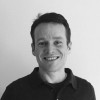3 Overlooked Methods to Beat Anxiety

*This is a guest post from Brian Pennie that was originally published on Medium.com. To view more of Brian’s amazing content, click here.
I’ve read far and wide on tactics to overcome anxiety. This includes books, blogs, my PhD research, and my life coaching practice. There are many good strategies available — I use several myself — especially exercise and mindfulness, but we live in a world full of anxiety, which is only getting worse, and I often wonder what we’re missing.
I personally spent 15 years running away from anxiety, but my life is very different today — I could not be more content. When I think about what has changed, three things come to mind…
1. Track your language and self-talk
“The words you speak become the house you live in.” — Hafiz
Research shows that language is a vehicle for emotion. As a result, how you think, and the language that you use, determines how you feel. It is therefore essential to observe what you say, especially what you say to yourself.
Negative talk such as arguing, gossiping, complaining and blaming — most of which we do in our heads — should be avoided at all costs.
Words that stop you taking action should also be avoided. For instance, words such as “I can’t”, “if only”, “I have to” and “I must” should be replaced with proactive words such as “I will”, “I choose to”, “Let’s look at another way”, and “I prefer”. This practice is empowering, and when you make the switch, even your posture will change.
In challenging situations, you should also track the questions that you ask yourself. For example, replacing “Why me?” with “What can I do about this?” can instill a sense of strength, rather than anxiety and fear.
The critical part is tracking what you say, especially self-talk, and when it carries negative emotions, replace it immediately.
2. Harness the power of choice
Life is full of challenges, most of which we have no control over. This might sound disheartening, but realizing this is a source of strength.
Why? Because we ALWAYS have control over how we respond to challenging events, even extremely difficult ones.
During his 27 year prison sentence, Nelson Mandela worked under torturous conditions. But instead of letting external circumstances control his behavior, he used meditation and reflective thinking to sharpen his mind.
Holocaust survivor Viktor Frankl used similar tactics to survive the abject misery of four concentration camps. He lost everything, yet continued to exercise the freedom to control his own inner-world.
These are extreme examples, but provide powerful demonstrations of our ability to choose.
“When we are no longer able to change a situation, we are challenged to change ourselves.” — Viktor Frankl
Next time you’re faced with a difficult situation, instead of resisting what has already occurred — which often takes the form of anxiety — accept the facts, and the pain will eventually subside. Don’t get this confused with giving up. Acceptance isn’t passive. It’s the first step towards corrective action. It’s also the opposite of resistance, which only creates more pain. By realizing this, you will harness the power of choice, and anxiety inducing events will no longer consume you.
3. Learn how to say “No”
“It’s only by saying no that you can concentrate on what’s important.” — Steve Jobs
People pleasing is exhausting, and saying yes to everything is a quick ticket to anxiety and overwhelm. You simply don’t have time to do everything; and more importantly, you’ll have less time for what really matters, such as family, friends, and your own mental health.
It is therefore crucial that you learn how to say no. The problem is, saying yes is easy, saying no is hard. It might be guilt, a sense of obligation, or the fear of missing out, the fact is, we all struggle to say no.
So how do you say no, and how do you do it gracefully?
You could simply say no, without explanation. Or if you have a rock solid reason, you could run with that. But declining gratefully, making it non-personal, and showing people that you thought about it, are the golden rules in ‘the art of no’.
For example, if asked to collaborate on a new project, you could say: “Thank you for the offer, it sounds like a great opportunity, and I’m probably going to regret it, but I’ll have to take a pass. I’m over-committed right now, and I’ve made it a policy to say no to any new projects until I clear the decks.”
If you need more guidance on how to say “no”, check out this brilliant and detailed guide by Marie Forleo.
In Conclusion
There are many known tactics to combat anxiety, yet its hold on society is greater than ever. If the status quo isn’t working for you, maybe it’s time to try something else.
- Don’t use self-defeating language, and when you do, replace it immediately.
- Don’t allow external events to control to your behavior. When challenged by a difficult situation, accept the facts, and move on.
- Focus on what’s important, and say no to everything else.
Do this, and I promise you will experience a dramatic shift in your levels of stress and anxiety.
#
Want to earn more, work less, and live your perfect life in 2019?
Sign up now to get our FREE Morning Routine guide—the #1 way to increase productivity, energy, and focus for profitable days. Used by thousands of fitness, business, and finance industry leaders to leapfrog the competition while making time for the people who really matter. Learn more here.
